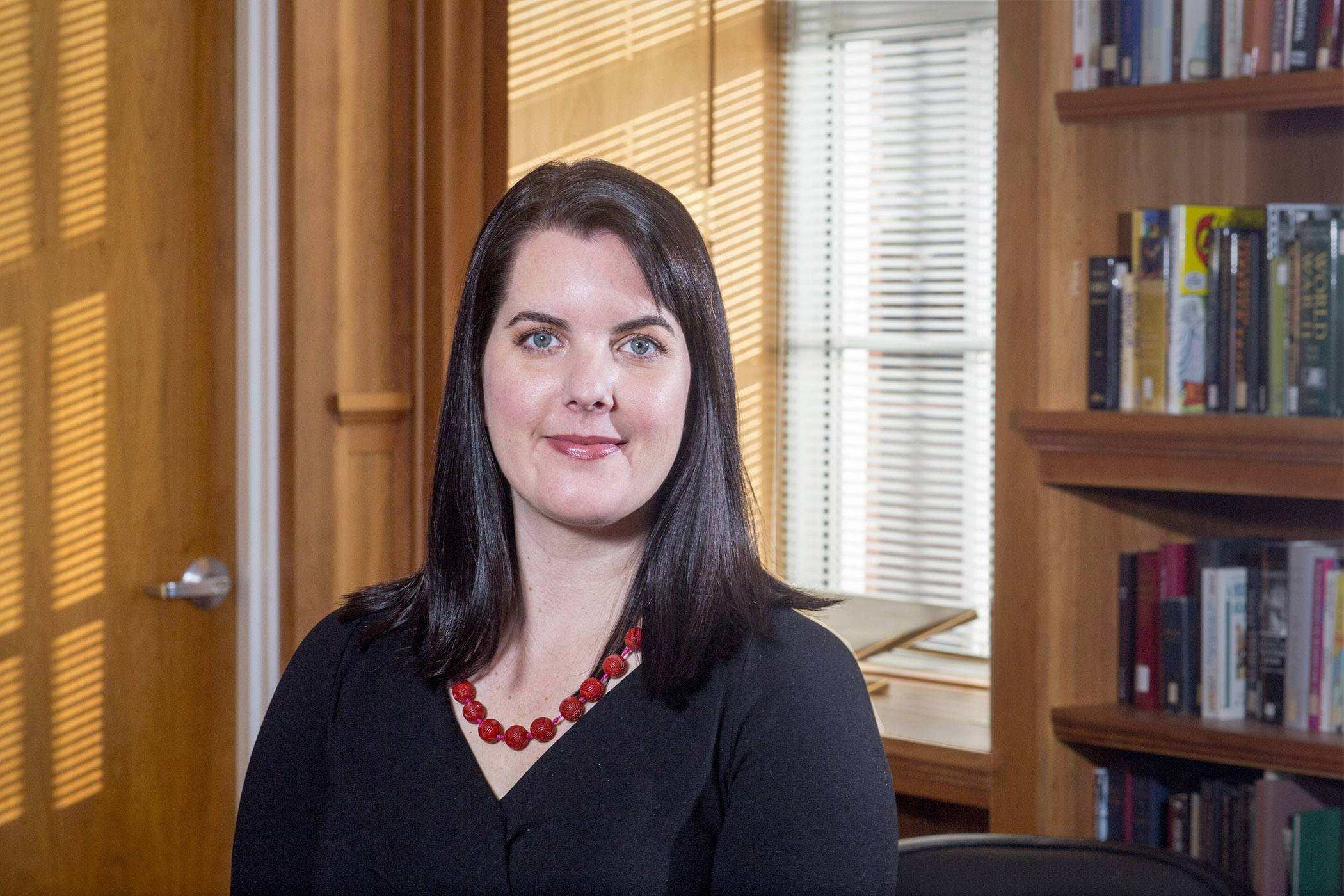Equipped with an undergraduate degree in English, Caroline Cason Barratt was looking for a job in Athens in 1999. A familiar story, but Cason trusted her instincts and applied to the UGA Libraries, landing an entry-level position.
Barratt, director of the Miller Learning Center Library Commons since 2010, said that first job gave her the opportunity to realize that she loved being in libraries and conducting research. It also made her realize how much she loved libraries as an institution.
“Within months I knew I wanted to pursue my Master of Library and Information Science,” she said. “It was the vocation for me.”
She now directs a library with no circulating books and a focus on digital research sources and references; that fact helps reflects the changes to librarianship shaped by technology.
Regardless of format-digital or print, in-person or via chat reference-Barratt said, “the main thing is helping people … leading to the moment of realization for them to answer a question, maybe open a new door and find a new path.
“Libraries are endless sources of discovery,” she also said.
Not just a home for classrooms, the Miller Learning Center also was designed as a unique combination of library resources and computing and study space, creating a comprehensive learning environment that maximizes innovative technology. It operates as a partnership between the UGA Libraries, Enterprise Information Technology Services and the Center for Teaching and Learning. Barratt was involved from the very start in planning the services and activities the new facility would offer and has helped steer program development there since opening day.
As technology has evolved, so has the MLC. Today a Digital Media Lab provides UGA students access to the latest in multimedia software and hardware for the creation and editing of course-related, digital media projects.
When the MLC opened as the Student Learning Center in 2003, there were 500 desktop computers. Now the MLC also lends laptops, iPads, digital cameras and audio recording equipment.
“Learning commons like the MLC are creative places that attempt to provide all the tools a student might need for the end result, which could be a multimedia project or a paper,” Barratt said.
In 2007, Barratt co-founded the UGA Libraries’ Undergraduate Research Awards, which are based on students’ ability to articulate their research process, reflect on the path followed and discuss what they concluded.
“It’s been amazing to have this opportunity to see what people do with what they find,” she said. “It gives us insight we would not otherwise have. We often help people find an answer, but we don’t see where it leads them.”
The latest development at the MLC was the move to staying open 24 hours. That change, Barratt said, was met with “a huge, positive response from the students, with the overarching theme, ‘It’s been a lifesaver.’ “
Originally designed to be open24 hours, the MLC previously closed at 2 a.m. due to budget constraints, but was open around the clock the weeks before and during final exams each semester.
Barratt maintains a presence on the reference service desk and continues a rigorous teaching load.
“It’s important to me to be involved in what happens day to day and understand what things people are asking for, and a good way to do that is to be on a service desk,” Barratt said. “It’s also fun and enlightening to work with our student consultants.”
Barratt’s research includes studies on student information-seeking behaviors and the evolution of the learning commons, including the use of digital resources like e-books. As a teaching librarian, she leads classes in library research for the Lamar Dodd School of Art, the College of Environment and Design and the anthropology department. She also has taught a First-Year Odyssey seminar.
“My professional life would not be complete without the teaching component,” Barratt said. “I enjoy talking to students about our resources and working with them on projects.”


